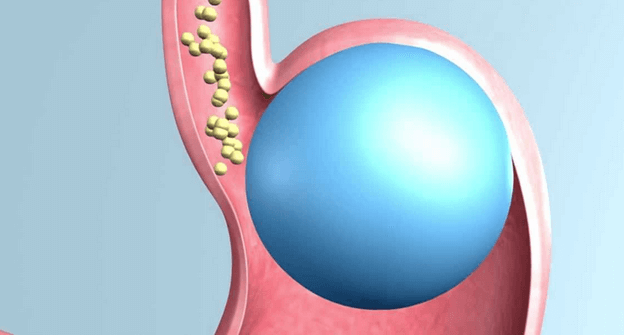Discover how endoscopic sleeve gastroplasty offers a groundbreaking approach to weight loss without the need for lifelong GLP-1 medications.
The Risks of GLP-1 Receptor Agonist Drugs for Weight Loss
GLP-1 receptor agonist drugs, commonly used for weight loss, come with their own set of risks and potential side effects. These medications work by mimicking the effects of a hormone called glucagon-like peptide-1 (GLP-1), which helps regulate blood sugar levels and reduce appetite. While they can be effective in promoting weight loss, they are not without drawbacks.
One of the main concerns with GLP-1 medications is the potential for gastrointestinal side effects. These can include nausea, vomiting, diarrhea, and constipation. These symptoms can be bothersome and may even lead to discontinuation of the medication in some cases.
Furthermore, GLP-1 medications may also increase the risk of pancreatitis, a condition characterized by inflammation of the pancreas. This can be a serious and potentially life-threatening complication. Additionally, there have been reports of an increased risk of thyroid cancer associated with long-term use of GLP-1 agonists. While the absolute risk is low, it is still a concern that should be taken into consideration. Additionally, for sustained weight loss, they must be taken for life. When stopped, most patients regain weight.
Considering these risks and potential side effects, it is understandable why many individuals may prefer alternative approaches to weight loss, such as endoscopic sleeve gastroplasty.
Understanding the Endoscopic Sleeve Gastroplasty Procedure
Endoscopic sleeve gastroplasty is a minimally invasive procedure that offers a non-surgical approach to weight loss. It involves using an endoscope, a flexible tube with a camera and surgical instruments, to reduce the size of the stomach without the need for incisions. During the procedure, the surgeon places sutures in the stomach, effectively creating a smaller, sleeve-shaped stomach.
The endoscopic sleeve gastroplasty procedure typically takes around 1-2 hours to complete and is performed under general anesthesia. Patients can usually go home the same day or the following day after the procedure. The recovery time is relatively short compared to traditional weight loss surgeries, and most individuals can resume their normal activities within a week.
This innovative procedure offers several benefits over traditional weight loss surgeries. It is less invasive, does not involve permanent alterations to the digestive system, and has a lower risk of complications. Additionally, endoscopic sleeve gastroplasty does not require the use of implants or foreign objects, making it an attractive option for those who prefer a more natural approach to weight loss.
Advantages of Endoscopic Sleeve Gastroplasty over GLP-1 Medications
Endoscopic sleeve gastroplasty has several advantages over GLP-1 medications when it comes to weight loss. Firstly, it provides a more sustainable and long-term solution. While GLP-1 medications may help individuals lose weight, they need to be taken indefinitely to maintain the results. On the other hand, endoscopic sleeve gastroplasty offers a permanent reduction in stomach size, leading to sustained weight loss without the need for lifelong medication.
Another advantage is the potential for greater weight loss. Studies have shown that endoscopic sleeve gastroplasty can lead to significant weight loss, with some individuals losing up to 20-25% of their excess body weight. This is often more than what can be achieved with GLP-1 medications alone.
Furthermore, endoscopic sleeve gastroplasty addresses not only weight loss but also the underlying factors contributing to obesity. By reducing the size of the stomach, this procedure helps individuals feel fuller with smaller portions of food, leading to reduced caloric intake. It also helps regulate hunger hormones, making it easier to stick to a healthy eating plan.
Overall, endoscopic sleeve gastroplasty offers a more comprehensive and effective approach to weight loss compared to GLP-1 medications. It tackles both the physical and psychological aspects of obesity, providing individuals with a greater chance of long-term success.
Exploring the Long-Term Effects of Endoscopic Sleeve Gastroplasty
While endoscopic sleeve gastroplasty is a relatively new procedure, studies have shown promising long-term results. Research has demonstrated that individuals who undergo this procedure can experience sustained weight loss and improvements in obesity-related health conditions, such as type 2 diabetes, high blood pressure, and sleep apnea.
One study published in the Journal of Clinical Endocrinology & Metabolism followed patients who underwent endoscopic sleeve gastroplasty for a period of five years. The results showed an average weight loss of 22% of excess body weight, with the majority of patients maintaining their weight loss over the long term.
It is important to note that the long-term success of endoscopic sleeve gastroplasty is highly dependent on lifestyle changes, including a healthy diet and regular exercise. This procedure serves as a tool to aid weight loss, but it is not a standalone solution. By adopting a balanced and sustainable lifestyle, individuals can maximize the benefits of endoscopic sleeve gastroplasty and maintain their weight loss for years to come.
Who Can Benefit from Endoscopic Sleeve Gastroplasty?
Endoscopic sleeve gastroplasty is suitable for individuals who are overweight or have obesity and have not been successful with traditional weight loss methods, such as diet and exercise. It can be an effective option for those who have a body mass index (BMI) between 30 and 40 and are motivated to make long-term lifestyle changes.
However, it is important to note that endoscopic sleeve gastroplasty is not a suitable option for everyone. Individuals with certain medical conditions, such as severe gastrointestinal disorders or bleeding disorders, may not be candidates for this procedure. Additionally, a thorough evaluation by a healthcare professional is necessary to determine if endoscopic sleeve gastroplasty is the right choice for an individual.
If you are considering endoscopic sleeve gastroplasty, it is important to consult with a qualified healthcare provider who specializes in weight loss procedures. They can assess your specific situation, discuss the potential risks and benefits, and help you make an informed decision.
Conclusion: Embracing a New Era of Weight Loss Solutions
Endoscopic sleeve gastroplasty represents a new era of weight loss solutions, offering a safe, effective, and minimally invasive alternative to traditional weight loss methods and lifelong GLP-1 medications. With its ability to provide sustained weight loss, improve obesity-related health conditions, and promote long-term lifestyle changes, this procedure has the potential to revolutionize the field of weight loss.
If you are struggling with obesity and have not found success with other weight loss approaches, endoscopic sleeve gastroplasty may be the solution you've been looking for. Consult with our practice to determine if this procedure is right for you and take the first step towards achieving your weight loss goals.





